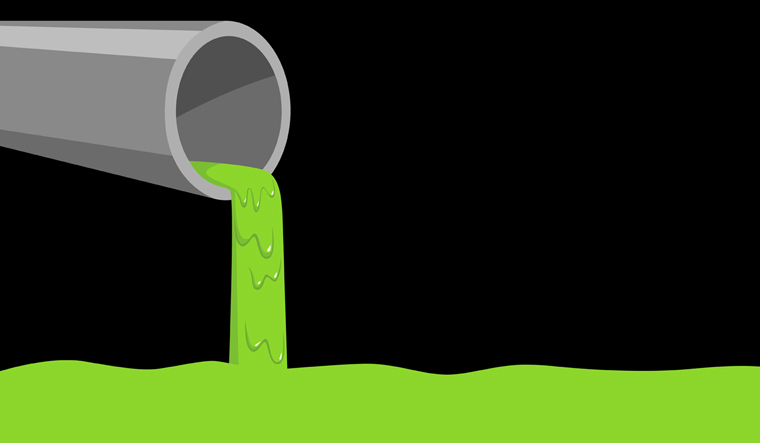Trusted Liquid Waste Disposal Melbourne: Safe and Reliable Services
Trusted Liquid Waste Disposal Melbourne: Safe and Reliable Services
Blog Article
Comprehending the Comprehensive Refine of Fluid Garbage Disposal: Ideal Practices and Environmental Effect Considerations
The administration of liquid waste disposal is a complex problem that requires a comprehensive understanding of various ideal practices and their linked environmental impacts. From the kinds of fluid waste produced to the approaches used for collection, therapy, and last disposal, each action plays a crucial role in securing ecosystems and public health and wellness.
Sorts Of Liquid Waste
Recognizing the different sorts of liquid waste is crucial for reliable administration and disposal techniques. Fluid waste can be broadly classified into numerous types, each requiring special handling and treatment methods.
Industrial liquid waste commonly contains dangerous materials, consisting of heavy metals, solvents, and chemicals, created throughout making processes. These wastes demand stringent governing conformity to protect human health and wellness and the environment. Domestic fluid waste primarily describes wastewater produced from homes, consisting of sewage and greywater, which, although much less poisonous, can still posture considerable dangers if incorrectly managed.
Agricultural fluid waste, consisting of overflow from farms, commonly has plant foods and chemicals that can bring about ecological destruction otherwise dealt with properly. Medical liquid waste, created from healthcare facilities, includes contaminated liquids such as physical liquids and chemicals, needing specialized disposal methods to stop infection and environmental contamination.
Finally, oil and grease waste, generally generated by restaurants and automobile sectors, can cause extreme obstructions in drain systems if not managed effectively. Understanding these classifications helps with targeted techniques for treatment, compliance with guidelines, and reliable disposal approaches, ultimately promoting ecological sustainability and public wellness security.

Collection Approaches
Reliable collection techniques are essential for the correct administration of liquid waste, ensuring that it is gathered safely and successfully prior to treatment or disposal. Various strategies are used relying on the sort of liquid waste created, the quantity, and the certain features of the waste.
One typical method is using specialized collection tanks or sumps, which are designed to record fluid waste at the resource. These systems often include pumps that facilitate the transfer of waste to larger storage containers or treatment facilities. In addition, mobile collection units geared up with vacuum cleaner technology are utilized in scenarios where waste is generated intermittently or in hard-to-reach areas.
For commercial setups, closed-loop systems can efficiently lessen spills and leaks, enabling the healing and reuse of fluid waste. It is likewise important to train workers on proper collection methods to mitigate risks connected with unsafe compounds.
In addition, implementing regular maintenance routines for collection tools ensures optimal performance and security. The assimilation of advanced monitoring systems can improve collection effectiveness by giving real-time information on waste degrees and possible risks. Overall, reliable collection methods are fundamental to lasting fluid waste monitoring techniques.
Therapy Procedures
Therapy procedures play a vital role in the management of liquid waste, changing possibly harmful materials into safe effluents or recyclable resources - liquid waste disposal. These procedures can be extensively classified into physical, chemical, and biological techniques, each tailored to address specific impurities present in the waste stream
Physical therapy techniques, such as sedimentation and filtering, work by eliminating put on hold solids and particulate matter. These strategies are usually the initial step in the therapy chain, successfully minimizing the load on subsequent processes. Chemical therapies involve making use of reagents to counteract dangerous materials, speed up hefty metals, or oxidize natural contaminants, therefore improving the security of the effluent.
Organic treatment processes, including activated sludge systems and anaerobic digestion, maximize the natural abilities of microbes to degrade organic issue. These approaches are particularly efficient for wastewater including naturally degradable pollutants. Advanced therapy modern technologies, such as membrane filtration and advanced oxidation processes, are significantly employed to achieve greater degrees of purification.
Incorporating a mix of these treatment methods not just ensures compliance with regulative criteria but also advertises ecological sustainability by recovering useful resources from liquid waste.
Disposal Options
Exactly how can companies guarantee the accountable and risk-free disposal of fluid waste? Effective disposal alternatives are critical for securing public wellness and the environment. The primary techniques include land disposal, therapy, and incineration adhered to by discharge into metropolitan wastewater systems.
Land disposal includes the careful control of fluid waste in assigned landfills, guaranteeing that it does not leach into bordering soil or water. Incineration, on the other hand, subjects liquid waste to high temperatures, converting it right into ash and gases, which need correct purification to lessen discharges. This approach is appropriate for harmful wastes that can not be browse around this web-site dealt with with standard ways.
In situations where liquid waste can be treated, organizations may choose chemical or organic therapy procedures to neutralize harmful components before releasing the treated effluent into metropolitan systems. This route generally lines up with governing needs, ensuring that the effluent fulfills get more security requirements.
Eventually, organizations have to conduct extensive analyses of each disposal alternative to identify its viability, considering elements such as waste structure, regulative compliance, and possible risks to health and the atmosphere. By picking suitable disposal approaches, services can add to a responsible waste administration approach.
Environmental Impact
The ecological impact of liquid waste disposal is an essential consideration for companies seeking to decrease their ecological impact. In addition, the discharge of unattended or improperly dealt with waste into surface area waters can result in eutrophication, leading to oxygen exhaustion and the subsequent death of fish and other microorganisms.

To reduce these impacts, companies must take on best techniques such as applying extensive waste therapy procedures, advertising recycling and reuse, and adhering to regulatory requirements. By taking a positive strategy to fluid waste administration, entities can substantially decrease their environmental impact while sustaining sustainable development objectives. Eventually, an extensive understanding of the environmental impacts linked with liquid waste disposal is essential for educated decision-making and accountable stewardship of natural resources.
Conclusion
Efficient administration of liquid waste is important for guarding ecological integrity and public wellness. Inevitably, a detailed understanding of fluid waste disposal not just mitigates ecological impacts however also cultivates a commitment to responsible resource monitoring and ecological stewardship.
The monitoring of fluid waste disposal is a diverse issue that calls for a complete understanding of various finest methods and their linked ecological influences. From the have a peek at this website kinds of fluid waste generated to the methods employed for collection, treatment, and final disposal, each step plays a critical function in guarding ecosystems and public health.The environmental impact of liquid waste disposal is a vital consideration for companies seeking to reduce their eco-friendly impact. Ultimately, a comprehensive understanding of the ecological influences linked with fluid waste disposal is crucial for informed decision-making and responsible stewardship of natural resources.
Eventually, an extensive understanding of liquid waste disposal not just minimizes ecological influences but additionally fosters a commitment to accountable source monitoring and environmental stewardship.
Report this page